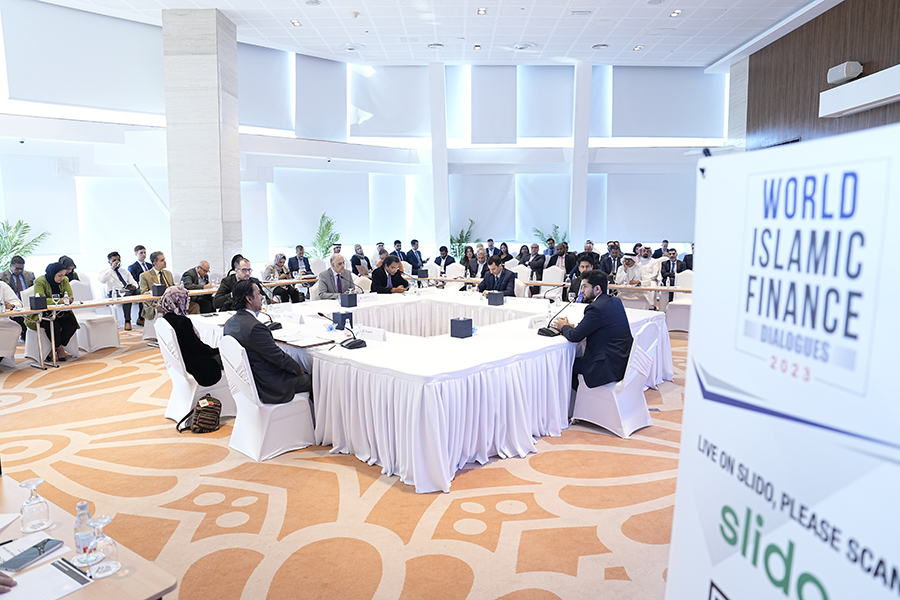
Ethical Financing and Islamic Banking: World Islamic Finance Dialogues 2023
Enhancing performance from an economic, social, and governance standpoint has become a priority of companies and investors worldwide, stemming from the corporate social responsibility initiative to a broader phenomenon. The ESG criteria is a set of standards that assess the sustainability of countries and companies with respect to responsible business practices that positively impact the environment, society, and a company’s governance. In return, ethical and sustainable financing gained significant traction in recent years.
Interestingly, Islamic banking has embraced the concept of ethical financing and ESGs since its inception and its subsequent re-emergence in the 1960s, therefore Islamic banking can be viewed as a unique form of socially responsible investments. The principles of Shariah are applied, encouraging the promotion of justice, fairness, and social welfare in the field of banking and finance.
In the heart of Islamic finance, Bahrain is a global leader and a center for Islamic banking, ranking 3rd in the MENA region and 6th globally for Islamic Fintech as well as 2nd in the MENA region and 4th globally for Islamic finance development. Bahrain is the chosen country for the headquarters of influential standard-setting bodies such as the Accounting and Auditing Organization for Islamic Financial Institutions (AAOIFI), the International Islamic Financial Market (IIFM), and the General Council for Islamic Banks and Financial Institutions (CIBAFI). Bahrain has also hosted countless Islamic banking and finance conferences and forums, drawing industry experts and practitioners from all over the world.
This article will provide a brief overview of the most recent discussions at the World Islamic Finance Dialogues (WIFD) held at the Wyndham Grand Manama in December 2023.
The Executive Director of the Central Bank of Bahrain’s Banking Supervision Directorate, Mr. Khalid Hamad Al-Hamad, highlighted, in his keynote speech, the significant role of regulators and financial institutions in the development of Islamic finance. The Executive Director stated that it is the role of regulators and Islamic banks to give back to society through ESGs, funding Small-to-Medium Enterprises (SMEs), and investing in society, as the industry will not grow unless customers are put first.
Subsequent to the keynote speech, two dialogue sessions were held hosting panelists from various renowned institutions.
Dialogue One: Building Momentum Through the Growth of Islamic Financial Markets
The first session included discussions regarding notable achievements of Shariah-compliant financial institutions, the impact of regulatory environments, in addition to the role of ESGs and sustainable financing. The panelists included Group General Counsel of Bapco Energies, Elina Mohamed, CEO of Safaghat W.L.L., Husain Sayed, CEO of International Islamic Financial Market, Ijlal Ahmed Alvi, Senior Manager of AAOIFI, Mughees Shaukat, Business Development Manager of CIBAFI, Rachid Ettaai, and Executive Director of Islamic Origination in Standard Chartered Bank, Sabir Ahmed.
Dialogue Two: Reaching New Heights – Innovation, Transformation and Digitalization of Islamic Financial Services
The second session highlighted the innovations of Islamic financial services and the rise of Islamic Fintech as well as the services that are transforming the digital landscape of Islamic finance and the future of conventional Islamic institutions. The panelists included the CEO of FLOOSS, Fawaz Ghazal, the Senior Fellow of the Department of Finance from the University of Technology Bahrain, Dr Gulnar Mulla, the CEO of Hejaz Financial Services, Hakan Ozyon, the CEO of IFIN Services, Dr Shaher Abbas, and the Managing Director of Codebase Technologies, Tamer Al Maug.
Key Takeaways
Throughout the discussions, sustainability, ESGs, financial inclusion for retail investors, and social development were said to play pivotal roles in the prosperity of Islamic finance.
One of the key takeaways was the significance of sukuk in the development of a trillion-dollar market. The panelists touched upon the recent milestone of sukuk, where the successfully priced USD500 million Green and Sustainability Sukuk (GESS), issued in 2023 by Abu Dhabi Islamic Bank, set a benchmark for the Islamic finance industry.
In brief, sukuk is a financial instrument that is a source of funds for companies or governments, inspired by the structure of bonds. However, since bonds are debt instruments based on interest (also known as ‘riba’ which is prohibited under the Shariah principles), sukuk is structured to grant ownership rights over an identifiable asset. Therefore, when an investor purchases a sukuk, the investor has ownership shares in a tangible asset related to the investment. In return, the investor receives a portion of the profits.
Moreover, the panelists highlighted that in Islamic finance, the concept of crowdfunding is considered to tick many boxes of the Shariah principles, since it provides financial inclusion and equal opportunities for society to participate in the growth of a business and reap profits.
Crowdfunding, in a nutshell, is a method for a business to raise finances through the collection of a relatively small number of investments from a large number of people online. Shariah-compliant crowdfunding works comparatively the same, however ensures that certain Shariah principles are adhered to such as the prohibition of interest and investment in harmful activities. In addition, the Central Bank of Bahrain regulates Shariah-compliant crowdfunding under the Crowdfunding Platform Operators Module (CFP), Type 7 (Ancillary Service Providers) of Volume 5 (Specialized Licensees) in its Rulebook.
Furthermore, it was highlighted that the International Monetary Fund (IMF) finds Islamic banking and finance to hold strategic significance that can contribute towards greater global financial stability, thus emphasizing the comprehensive role of Islamic banks in fulfilling the Shariah principles through giving back to society.
The WIFD was a remarkable event that highlighted the core of Islamic banking; ethical and sustainable financing that supports justice, fairness, and social welfare.





